For locum tenens physicians and advanced practice providers, licensing is part of the job. Whether just getting started with locums work or moving to a new facility, locum tenens clinicians are required to be licensed in each state they work in and credentialed at each site.
While the amount of time licensing and credentialing can take varies from state to state and site to site, keeping the right records and documents in order can go a long way in making it easier.
What Documents Do I Need?
For Credentialing
While credentialing requirements vary per site, you will generally be asked to complete credentialing paperwork which can include group, hospital, and provider enrollment applications.
Common documents requested during the credentialing process include:
- A current CV with dates in Month/Year format
- Your Medical School Diploma/Nursing Degree/Physician Assistant Degree
- Postgraduate training certificates, including those for internships, residency, fellowship, and any specialty board certifications
- Copies of state medical licenses, controlled substance licenses, DEAs, and other certifications such as ACLS, ATLS, PALS, etc.
- Certificate of Insurance from previous carriers/facilities (typically going back 10 years) and explanations for any malpractice suits
- Health documentation; most commonly requested: TB (within 12 months), Flu shot (within 12 months), MMR, Varicella, Hep B, Tdap, and Varicella
- Continuing Medical Education (CME)
For Licensure
Each state has a unique process for completing state licensure. All states will ask you to complete an application, pay a fee and provide supporting documents. Several states require a controlled substance license in addition to a medical license. You can expect to have your education and past work history verified during the licensing process.
Common documents requested during the licensing process include:
- A current CV with dates in Month/Year format
- Transcripts of Licensing Examination Scores
- Your Medical School Diploma/Nursing Degree/Physician Assistant Degree
- Postgraduate training certificates, including those for internships, residency, fellowship, and any specialty board certifications
- 24-month case/procedure logs demonstrating work experience
- Color copy of passport photo
- Color copy of your license and passport
What Should My CV Include?
Your CV should offer a concise yet thorough snapshot of your experience. Here’s a basic outline of what to include:
- Full name and up-to-date contact information
- Professional work experience with dates in MM/YY format, including practice specifics, hospital affiliations and any military service, starting with your most recent assignments
- Full explanation on any gaps of employment more than 30 days
- Academic history in MM/YY format, including graduate training, internship, medical school and undergraduate training
- Licensure and certifications, including re-certification dates in MM/YY format
- Professional associations
- Honors, volunteer work, community service and additional accomplishments
- Any publications, presentations or research
If you’re venturing away from locum tenens and looking at permanent placement, you may want to customize your CV for each opportunity.
Be prepared to explain any gaps in work longer than 30 days. You should also have written explanations for any malpractice, discipline issues or personal legal matters. If you’ve been involved in malpractice, you’ll need to have names and contact information for insurance carriers and any court documents at the ready.
Final Words of Wisdom
Be sure to mind licensing application deadlines and know that third-party references and verifications can sometimes require diligent follow-up efforts on your part. Some state boards and facilities will void licensing/credentialing applications that aren't completed on time, or applications that contain errors, so be thorough!
Ultimately, the health care facility or practice you apply to is responsible for credentialing, but how smooth and quick the process is depends largely on your ability to provide proper documentation and complete the necessary paperwork.
VISTA is Here to Help
If the licensing and credentialing process seems like a lot to keep straight, we are here to help. Our licensing and credentialing experts will work with you, the state medical boards and health care facilities to ensure all of the necessary paperwork is completed and documentation is ready—on time, headache-free and in shape for approval.
No matter where you envision your locum tenens career taking you, having a head start on the state licensing process is a good plan. Check out our helpful resources for locum tenens clinicians, explore our job board or contact VISTA today.

